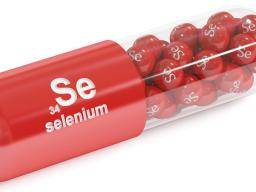January 2018
By Debra Rose Wilson
Selenium is an essential trace mineral that is important for many bodily processes, including cognitive function, a healthy immune system, and fertility in both men and women.
It contributes to thyroid hormone metabolism and DNA synthesis, and it helps protect against oxidative damage and infection, according to the United States Office of Dietary Supplements.
It is present in human tissue, mostly in skeletal muscle.
Dietary sources are varied. They include Brazil nuts, seafood, and meats.
The amount of selenium in food often depends on the selenium concentration of the soil and water where farmers grew or raised the food.
Selenium may help prevent cardiovascular disease, thyroid problems, cognitive decline, which means disorders related to thinking, cancer, and others.
Cardiovascular disease: According to the Office for Dietary Supplements, selenoproteins can protect against cardiovascular disease, because they prevent the oxidative modification of lipids, or fats, in the body.
This reduces inflammation and prevents the buildup of platelets.
However, clinical evidence does not support the use of selenium supplements for this purpose.
Cognitive decline: Selenium’s antioxidant activity may help reduce the risk of cognitive, or mental, decline, as people get older.
Evidence from studies is mixed, however, and selenium supplements are not yet prescribed for people at risk of diseases such as Alzheimer’s, although it may have a role in prevention that is still under investigation.
Thyroid disorders: Selenium has an important role in producing and metabolizing thyroid hormone.











